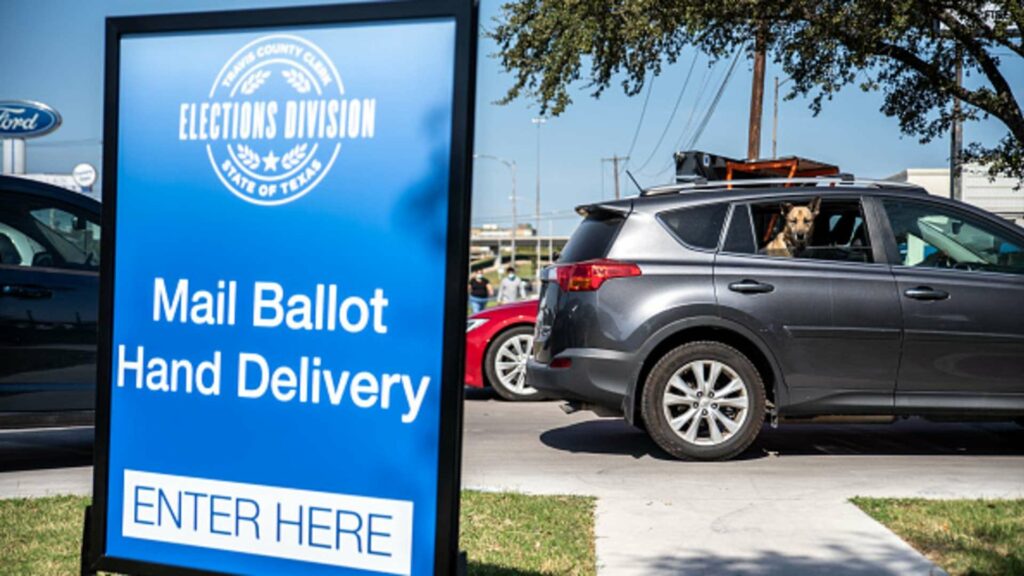The Associated Press found that Texas discarded an abnormally high number of mail ballots during the nation’s first primary of 2022, rejecting nearly 23,000 ballots outright under stricter voting rules enacted by Republicans to reshape electoral politics in the country.
Across 187 counties in Texas, roughly 13 percent of mail ballots were discarded and uncounted in the March 1 primary, PBS report. In the absence of historical primary comparisons, a double-digit rejection rate would be above the norm for a general election, where anything above 2 percent is usually caused for concern.
“My first reaction is ‘yikes,’” explains Charles Stewart III, director of Massachusetts Institute of Technology’s Election Data and Science Lab.
“It says to me that there’s something seriously wrong with the way that the mail ballot policy is being administered.”
The Republican Party promised tighter voting rules would make it “easier to vote and harder to cheat.”
However, the final numbers recorded by AP show how obstacles and a rushed implementation led to thousands of uncounted votes.
Texas’ election marked the debut of stricter voting rules the GOP rushed to put in place nationwide in time for the midterms, a push aimed especially at mail voting, which surged in popularity during the pandemic.
As many as 17 other states will cast ballots in the coming months under tougher election laws, driven partly by Trump’s baseless and persistent claims of widespread fraud in the 2020 election.
AP has previously identified hundreds of possible voter fraud cases in six battleground states that Trump disputed, but the rejected ballots in Texas alone far surpass that number.
According to the Associated Press, 22,898 rejected ballots were counted across Texas by contacting all 254 counties to obtain final reconciliation reports. AP received data from 187 counties, but some smaller counties did not provide full numbers and did not respond to requests. Those 187 counties accounted for 85 percent of the 3 million primary voters.
According to the Associated Press, 27,000 ballots in Texas were initially rejected, so the voters still have several days after the primary to “fix” their ballot and have it count. According to final figures, most voters failed to fix their ballots.
Almost 7,000 mail ballots – about 19 percent – were thrown out in Houston, a Democratic stronghold. Only 135 mail ballots were rejected by Texas’ largest county during the last midterm elections.
Annette Young, who lives in rural East Texas, voted by mail like usual, but a week after the primary she received an unexpected letter to tell her that her ballot didn’t count because it didn’t comply with a new law that requires personal identification numbers to be included with mail ballots.
“I just threw it right in the trash,” she said.
The Texas secretary of state and county election officials both claim that most of the rejected ballots failed to adhere to the new identification requirements.
In October, Republican Gov. Greg Abbott signed into law sweeping changes to Texas’ elections, stating at the time that “no one who is eligible to vote will be denied the opportunity.”
It is notable that Abbott and other Texas Republicans who championed the changes have largely remained silent about the high rejection rates. The office of GOP Lt. Gov. Dan Patrick and Republican House Speaker Dade Phelan did not respond to requests for comment.
A supporter of the changes, Republican state Sen. Paul Bettencourt, indicated in an email that different colors of ink on ballot instructions might have led voters to believe that they did not need to provide both.
According to Texas’ new mail ballot requirements, the carrier-envelope of the ballot must include an identification number. When a ballot is rejected, a voter can provide the missing information or cast a ballot in person instead.
Many Texas voters who had their mail ballots rejected may have still been able to vote if they decided to simply go in person instead.

